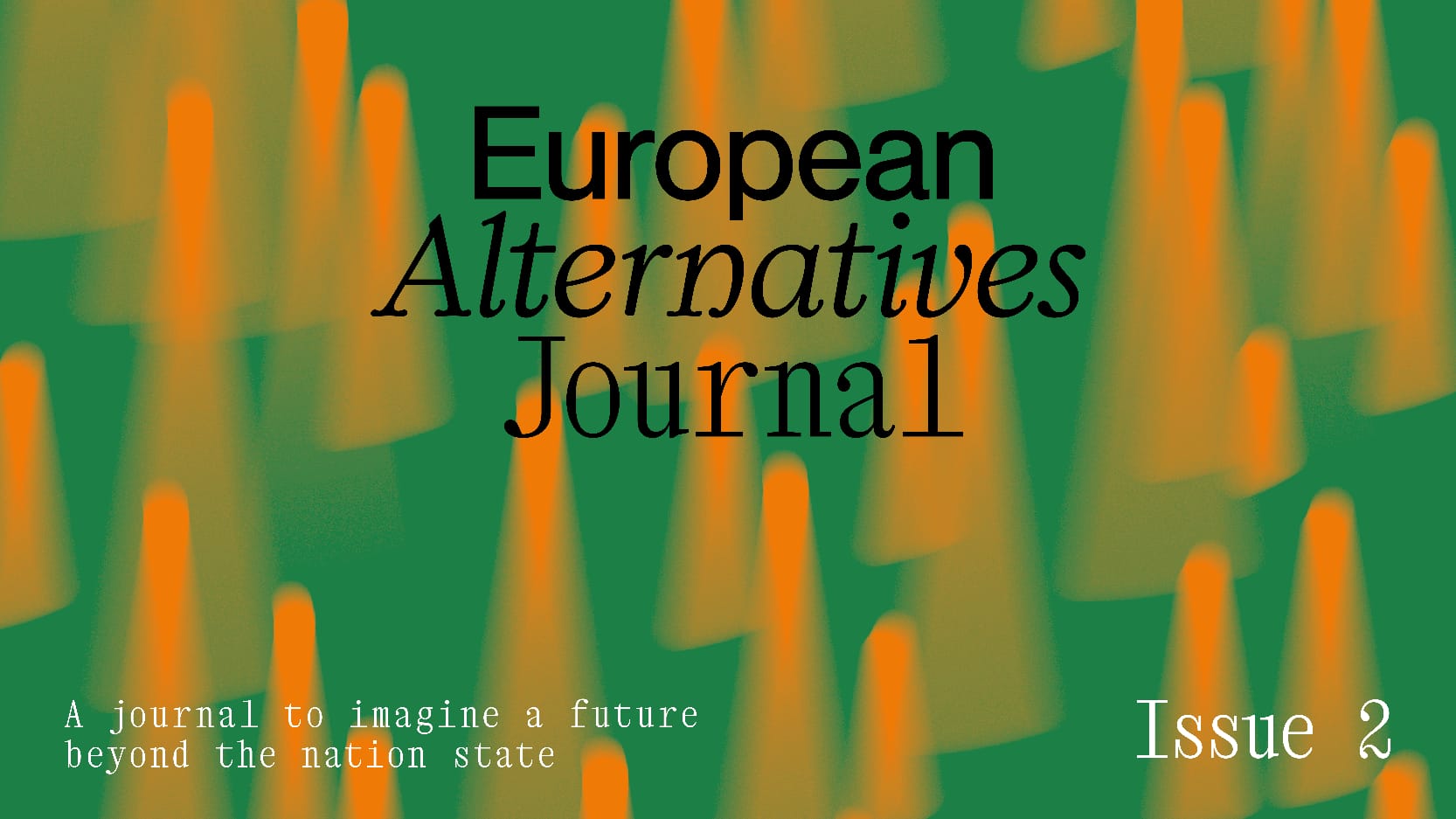Aug 4, 2023
Launching the European Alternatives Journal Issue 2
Europe. For many around the world, the word, the idea, the geographical project, connotes violence. The violence of centuries of settler colonial expansion, imperial exploitation, genocide and environmental degradation. The violence of borders closed to a world it continues to exploit. The violence of an ideological project of ‘civilisation’ and telelological progress, deemed to occur ‘first in Europe, then elsewhere’. The violence of continuing white supremacy and white fragility endemic within European society. The violence of an ongoing process of global domination through neocolonial resource and labour extraction across the ‘global south’.
We begin the second issue of the newly relaunched European Alternatives journal with an article by Professor Gurminder Bhambra framing the European project in its recent historical context, in a broader section on decolonising Europe. The process of decolonising, if it is to be successful, will be painful for the many who benefit, wittingly or unwittingly, from Europe’s global structural injustice. It entails a relinquishing of power, of wealth, of space, of attitudes, of ego, of ideology. It entails reparations and justice. It entails a rebalancing of global dynamics and societal heirarchies. It entails humility. For decolonisation is not simply a buzzword, a debate, or a changing of terminology. It is a long process, which if successful, would entail a profound material world revolution.
As an NGO that acts and situates itself in the interstices between EU institutions, associations and movements, European Alternatives is by no means immune from the structural colonial context within which we exist. What we begin to discuss here is only a small, by no means complete, step engaging with a broader global process of dismantling and transformation.
The recent police killing of Nahel M. and numerous other – mainly Black and Arab – young men and children in France demonstrates once again how physical violence and dehumanisation of racialised people, deeply intwined with Europe’s colonial heritage, continues to be lethal. In our second feature, Juliet Carpenter, Christina Horvath and Ségolène Pruvot report from the Festival Littératures en Marges which took place from 29 June-1 July 2023 in Saint-Denis, Paris in a backdrop of systemic police violence and popular protest. The festival platformed writers, slam artists, rappers and creatives from the ‘banlieues’ of Paris, many of whom use their platforms to express resistance to the status quo and the condition of being ‘marginalised’.
Writing from the frontlines of the resistance of another imperial project, in our third feature Luke Cooper shares his experiences from a recent visit to Kyiv, where networks of civicness have been crucial to the maintenance of a semblance of normality against Putin’s invasian. Ukraine is an example of how international solidarity and grassroots anti-imperial organisation can work together in defence of self-determination. Not only have Western powers supported the Ukrainian resistance, the European Union’s asylum system rightly and quickly opened its borders, almost overnight, to the millions of Ukrainian refugees fleeing the warzone. When compared to Europe’s treatment of racialised migrants, the example of Ukraine highlights the possibilities and the limits of the EU’s current asylum system, revealing a highly (racially) selective bordering project.
In our final feature, Astrid Van Weyenberg and Didi Spaans question these borders – physically, culturally and ideologically – in a critical review of Tom Lanoye’s theatre novella Fortress Europe (2005), exploring the question of European identity in a colonial context.
Our section on Assembling, Organising and Acting continues with an important article raising awareness on biphobia and mental health from Alejandra Piot and Viola Bianchetti; lessons from a successful campaign to expropriate and socialise housing in Berlin by Daniel Gutiérrez; a taster from Jamie Mackay about Democratic Odyssey, an upcoming transnational assemby project; and a report from Seema Syeda on the newly launched Power to the People transnational webinar series.
Finally, celebrating the power of culture and imagination in our Art Beyond Borders section, we publish an interview with avante-garde artist and seismic sensor Moon Ribas; an Artsformation podcast on decolonising the digital transformation; an intersectional critique of data collection by artist and machine-learning-design researcher Caroline Sinders; and a bitter-sweet photographic reflection on the lost fishermen of Accra, Trapani and Isole Kerkennah by Stefano Liberti and Francesco Bellina.
Our journey takes us from a brief reckoning with the violence of European coloniality through to organising attempts that seek to shift the baselines of that structure, finishing with a glimmer of radical imaginary towards an alternative future expressed through artistic and cultural endeavour. We hope you may find in this journey, just as we do, nourishment, provocation and inspiration in different measures.
DOWNLOAD IT HERE
